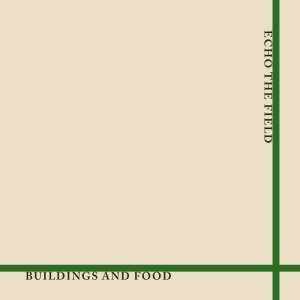 After spending her early years in an indie alternative rock band, Jen K. Wilson struck out on her own as Buildings and Food. The traces of her history can be read in the name, which references a 1978 album by Talking Heads. Only occasionally can one hear the influence of the band, as Wilson’s primary timbres are ambient and electronic in the Morr Music vein. Yet even this is deceptive, as other timbres sneak in, from early experiments with glitch and vocals to shoegaze and field recordings on 2023’s Infinity Plus One. The sky-d EP, released earlier this year, is all ambient, an interesting approach in that the three tracks, which showcase one side of the Toronto composer, are now integrated into the more electronic template of Echo the Field.
After spending her early years in an indie alternative rock band, Jen K. Wilson struck out on her own as Buildings and Food. The traces of her history can be read in the name, which references a 1978 album by Talking Heads. Only occasionally can one hear the influence of the band, as Wilson’s primary timbres are ambient and electronic in the Morr Music vein. Yet even this is deceptive, as other timbres sneak in, from early experiments with glitch and vocals to shoegaze and field recordings on 2023’s Infinity Plus One. The sky-d EP, released earlier this year, is all ambient, an interesting approach in that the three tracks, which showcase one side of the Toronto composer, are now integrated into the more electronic template of Echo the Field.
The one constant in Wilson’s recordings is a positive, hopeful nature, which shines through all four albums. In the midst of global turmoil, the artist described Infinity Plus One as “a soundtrack to a hopeful future,” while pandemic album Up Down Strange Charm acknowledged loss while paving an emotional path forward. Echo the Field is inspired by trips to the Mojave and Sonoran deserts, and sounds lush despite the inspiring aridity, a sign that the music is a reflection more of the mind than of the landscape. In context, the ambient pieces connote stillness and space, while the tempo-driven pieces suggest life amidst barrenness. Together they flow like sand across the dunes.
Each of Wilson’s albums has a sparkling standout. On the last set, the go-to tune was “Compass,” here the standout is “Flatland.” The album’s first percussive track, “Flatland” comes across as the green lines on the cover bisecting a world of beige. The programming is warm, the pads soothing; toward the end, one hears intimations of birds. From here, “Coasting” offers a gentler journey, piano performing a pas de deux with synth, followed by one of the softer pieces from sky-d. Had the album ended here, it would have formed an arc or circle; but when it continues, the listener realizes that it takes the form of waves.
A flutter, like a piece of paper stuck in an AC unit, introduces “Found Objects,” at first growing less predictable and more insistent, then transforming into a sort of avant percussion. One struggles to identify the found objects: bicycle wheels, typewriter keys? In “Planting a Desert,” the energy level rises again, and one can imagine the tireless artist planting and watering seeds, even in a shadeless environment. “Sea Second” solidifies the association of waves, the water a foil to the sand.
Thanks to its clear theme and flow, Echo the Field is Wilson’s most unified album to date, a pleasant inversion in that she traveled into the wilderness, only to find new life. (Richard Allen)
